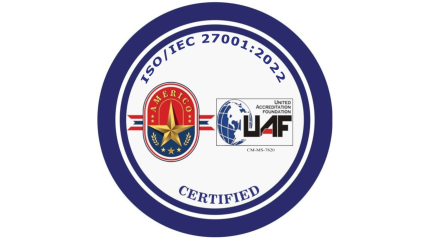Table Of Content
Enterprise Management Control in ERP

Maximizing Financial Performance: The Importance of Enterprise Management Control in ERP Systems
ERP (Enterprise Resource Planning) systems are crucial for modern business operations. They manage essential business processes, including finance, procurement, manufacturing, and human resources. In today's competitive marketplace, companies must invest in ERP systems to optimize operations, reduce costs, and enhance productivity. Implementing an ERP system is essential for organizations to remain competitive and reach their objectives.
Enterprise Management Control (EMC) encompasses an organization's processes and systems to ensure its activities align with its strategic goals and operate efficiently and effectively. The EMC function of an ERP system covers various aspects, including performance monitoring, financial metrics, key performance indicators KPIs, compliance management, workflow automation, and approval processes. It also includes governance, risk management, budgeting, forecasting, variance analysis, dashboards, reports, business intelligence (BI), data analytics, process optimization, and continuous improvement.
Globe3 Enterprise Management Control Module
Globe3 ERP is a comprehensive software for managing all aspects of an organization's operations. The management control module of Globe3 ERP provides tools for managing and monitoring the organization's performance and ensuring compliance with policies and regulations.
ERP systems provide a comprehensive platform for EMC by integrating and automating various business processes, providing real-time information, and supporting decision-making. Here are some of how ERP systems can support EMC:
1. Budgeting and Planning:
The EMC module typically includes financial accounting, cost accounting, and budgeting features. It provides tools for creating and managing budgets, tracking expenses, generating reports on financial performance, and allocating resources based on strategic objectives.
It allows for creating multi-year plans, forecasting, and scenario planning. It also provides features for managing financial transactions such as invoicing, payment processing, and financial analysis.
2. Performance Monitoring:
One of the critical features of Globe3's EMC module is its ability to provide real-time data on an organization's financial health. Access to the latest data empowers managers to make sound decisions, thereby contributing to the financial stability and competitiveness of the organization.
With this module, organizations can closely monitor their KPIs and make informed decisions in real-time. It also allows for drill-down analysis of financial metrics by department, business unit, or location.
3. Process Control:
The module enables organizations to define and enforce standard business processes, ensuring that activities are consistent with internal policies and regulations. This feature empowers managers to monitor their business processes in real-time. It allows them to swiftly identify and resolve potential bottlenecks, ensuring optimal efficiency and productivity.
4. Risk Management:
The module provides tools for identifying, assessing, and mitigating risks. It allows organizations to monitor compliance management with regulations and internal policies, reducing non-compliance risk and associated penalties.
5. Reporting and Analysis:
The ERP system's EMC module provides an integrated view of financial data, enabling managers to monitor revenue and expenses, manage budgets, and forecast future performance. It provides real-time data that can be used to generate reports and conduct data analytics. Custom reports and dashboards can be created to provide managers with the necessary information to make informed decisions.
Optimize operations seamlessly with Globe3's EMC Module
Globe3 is an example of an ERP system that offers an EMC module, which includes features such as financial accounting, cost accounting, budgeting, and real-time data analytics. The module offers great flexibility, empowering organizations to customize it to their needs and requirements. The EMC module of Globe3 is designed to help organizations manage their financial performance and control costs through comprehensive financial planning and analysis capabilities.
Conclusion
In conclusion, the Management Control module of Globe3 ERP provides organizations with the tools they need to manage and monitor their financial performance, ensuring that they are aligned with their strategic objectives and compliant with internal policies and regulations. The EMC module provides a comprehensive suite of financial management, budgeting, forecasting, and performance reporting features.
Globe3 ERP Solution Singapore is an example of an ERP system that offers an EMC module that is highly customizable and enables organizations to manage their financial performance more effectively. The EMC module in Globe3 ERP provides enhanced visibility into an organization's financial health, enabling informed decision-making, and is critical for maintaining competitiveness in today's business environment. Contact Us now for a free consultation!
Most Read
ISO 27001 Certification: A Milestone in TNO Systems’ Commitment to Information Security
TNO Systems Pte Ltd is proud to announce that it has successfully achieved ISO 27001 certification, a globally recognized Information Security Management Systems (ISMS) standard.
Top 6 Benefits That Accounting Software Brings To Your Business
Feeling worn out from manually tracking financial transactions in bookkeeping and needing help to stay ahead of the numbers? Look into accounting software, the modern solution that can transform your
3 Key Benefits of Moving your On-Premises ERP System to the Cloud
As more companies migrate their on-premises ERP to the cloud, figure out the key benefits of cloud-based ERP and the reasons to migrate. First, a cloud ERP solution allows users to access their ERP









